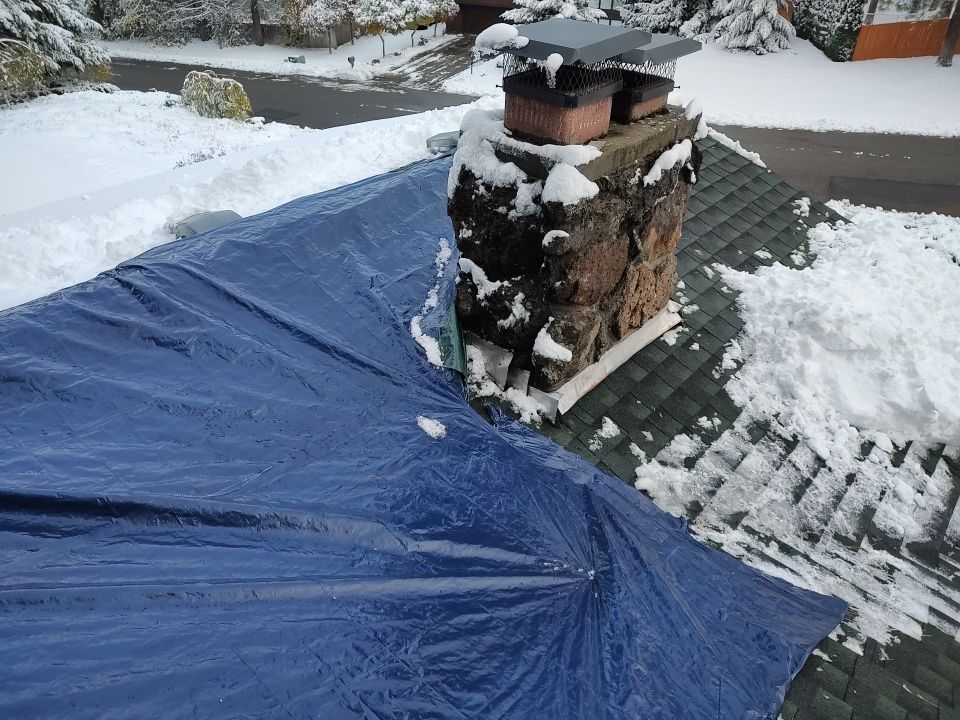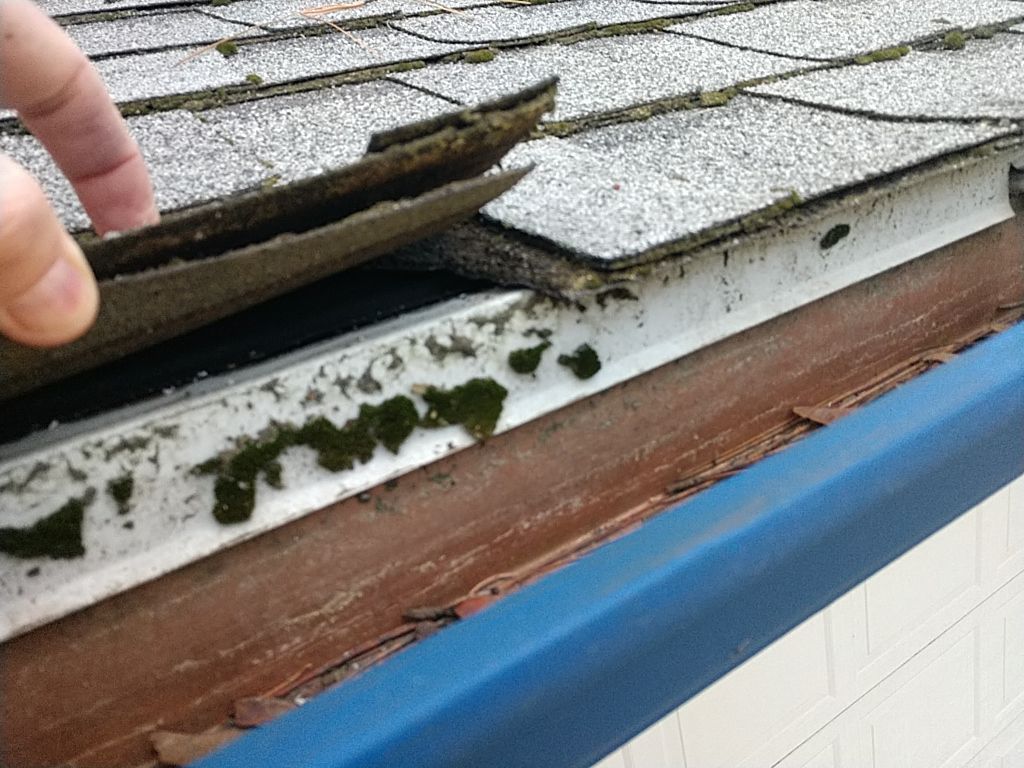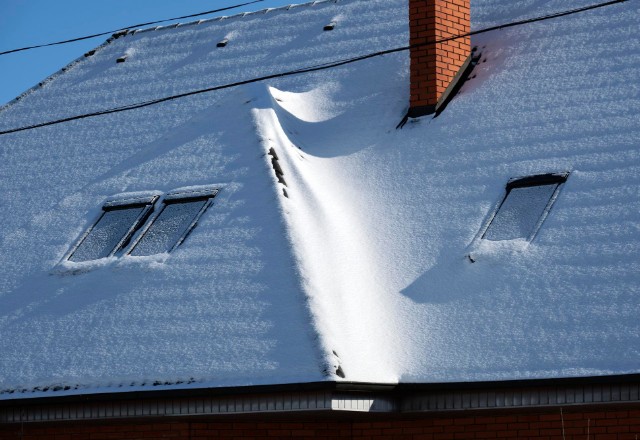As a homeowner, you know that maintaining a healthy roof is crucial year-round. But when the cold weather sets in and snow begins to fall, you might find yourself wondering, “Do roofers work in the winter?” In this comprehensive guide, we’ll explore the factors that influence roofing work during the winter months and help you make informed decisions about your roofing needs. And yes, we at Advance Roofing LLC work in winter to keep your property safe and protected.
Factors Affecting Winter Roofing Work
Several key factors can impact whether roofers work in the winter and the types of projects they can take on:
Weather Conditions
Harsh weather conditions, such as heavy snowfall, ice, and freezing temperatures, can make roofing work more challenging and hazardous. Cold temperatures can affect the performance of certain roofing materials and make them more difficult to install properly.
Shorter Daylight Hours
With fewer daylight hours during the winter, roofers may have a limited window to complete projects, especially if they rely on natural light to ensure proper installation.
Material Limitations
Some roofing materials, such as asphalt shingles, require a specific temperature range for proper installation and sealing. In cold weather, these materials may become brittle and more prone to cracking, making them harder to work with.
Safety Concerns
Cold temperatures, snow, and ice can create slippery and hazardous working conditions for roofers. Extra precautions must be taken to ensure the safety of the roofing crew, which may slow down the installation process.
Building Codes and Regulations
Local building codes and regulations may have specific requirements or restrictions for roofing work during the winter months, which can impact the feasibility of certain projects.
Types of Roofing Work Possible in Winter
While winter weather can present challenges, some types of roofing work can still be done during the colder months:
Emergency Repairs
If your roof suffers damage from a winter storm or you experience a sudden leak, roofers can typically handle emergency repairs to prevent further issues and protect your home.
Preventive Maintenance and Inspections
Winter is an excellent time to schedule a roof inspection to identify potential problems and perform preventive maintenance. This can help you avoid more serious and costly issues down the line.
Insulation and Ventilation Upgrades
Improving your roof’s insulation and ventilation can help regulate your home’s temperature, reduce ice dam formation, and minimize the risk of moisture-related damage. These upgrades can often be done during the winter months.
Interior Roofing Projects
Some roofing projects, such as attic insulation or ceiling repairs, can be completed from the inside of your home, making them feasible during the winter months.
Cold-Weather-Specific Roofing Materials and Techniques
Certain roofing materials and techniques are specifically designed for use in cold weather conditions. For example, some manufacturers offer cold weather adhesives and sealants that can be applied at lower temperatures.

Advantages of Winter Roofing Work
While winter roofing work presents some challenges, there are also potential advantages to tackling your roofing needs during the colder months:
Faster Project Completion
Since fewer homeowners schedule roofing projects during the winter, you may be able to have your job completed more quickly due to reduced demand.
Potential Discounts or Off-Season Pricing
Some roofing companies may offer discounts or special pricing during the winter months to keep their crews busy and offset the seasonal slowdown.
Immediate Resolution of Roofing Issues
Addressing roofing issues promptly, even in the winter, can prevent further damage and protect your home from the elements.
Improved Energy Efficiency
Upgrading your roof’s insulation and ventilation during the winter can help improve your home’s energy efficiency and reduce your heating costs.
Preparing for Spring and Summer
By completing roofing work in the winter, you’ll be ready for the spring and summer months when you want to focus on other home improvement projects.
Disadvantages and Challenges of Winter Roofing Work
While there are benefits to winter roofing work, it’s essential to be aware of the potential drawbacks and challenges:
Increased Safety Risks
Cold temperatures, snow, and ice can create hazardous working conditions for roofers, increasing the risk of slips, falls, and other accidents.
Potential Project Delays
Inclement weather, such as heavy snowfall or freezing temperatures, can cause project delays and extend the timeline for completing your roofing work.
Limited Material Options
Some roofing materials may not be suitable for installation during cold weather, limiting your options for roof repairs or replacements.
Possible Compromises in Material Performance
Cold temperatures can affect the performance and longevity of certain roofing materials, particularly if they are not designed for winter installation.
Higher Costs for Specialized Equipment or Techniques
Roofing companies may need to use specialized equipment or techniques to work safely and effectively in winter conditions, which can increase the overall cost of your project.
Pros of Winter Roofing Work | Cons of Winter Roofing Work |
Faster project completion due to reduced demand | Increased safety risks for roofers |
Potential discounts or off-season pricing | Potential project delays due to inclement weather |
Immediate resolution of roofing issues | Limited material options or longer installation times |
Improved energy efficiency and reduced heating costs | Possible compromises in material performance or longevity |
Preparing your roof for the upcoming spring and summer | Higher costs for specialized equipment or cold-weather techniques |

How to Determine if Winter Roofing Work is Right for You
To decide whether winter roofing work is the best choice for your situation, consider the following factors:
Urgency and Severity of Your Roofing Issues
If you have a pressing roofing problem, such as a leak or significant damage, it may be necessary to address it immediately, regardless of the season.
Consultation with a Professional Roofing Contractor
Schedule a consultation with a reputable roofing contractor to assess your roof’s condition, discuss your options, and determine the feasibility of winter roofing work for your specific needs.
Your Budget and Long-Term Roofing Goals
Consider your budget and long-term roofing goals when deciding whether to proceed with winter roofing work. In some cases, it may be more cost-effective to wait until spring or summer to tackle larger projects.
Local Climate and Weather Patterns
Evaluate your local climate and typical winter weather patterns to gauge the likelihood of successful winter roofing work. Some regions may experience milder winters that are more conducive to roofing projects.
Understanding Limitations and Potential Risks
Be aware of the limitations and potential risks associated with winter roofing work, such as increased safety hazards, material limitations, and possible project delays.
Tips for Successful Winter Roofing Projects
If you decide to proceed with a winter roofing project, keep these tips in mind to ensure a successful outcome:
Choose an Experienced and Reputable Roofing Contractor
Work with a roofing company that has experience with winter roofing work and a proven track record of success. Look for contractors who prioritize safety and use appropriate equipment and techniques for cold weather conditions.
Opt for Cold-Weather-Specific Materials and Techniques
When possible, choose roofing materials and techniques that are designed for use in cold weather to ensure optimal performance and longevity.
Be Prepared for Potential Project Delays
Have a flexible timeline and be prepared for potential project delays due to inclement weather or other winter-related challenges.
Ensure Proper Safety Measures
Confirm that your roofing contractor follows proper safety protocols and has the necessary equipment, such as specialized boots and safety gear, to protect their crew during winter roofing work.
Schedule Regular Maintenance and Inspections
Regardless of the season, scheduling regular roof maintenance and inspections can help you identify and address potential issues before they become more serious and costly to repair.

Conclusion
So, do roofers work in the winter? The answer is yes, but with some caveats. While winter weather can present challenges and limitations, many roofing companies are equipped to handle certain types of roofing work during the colder months. By understanding the factors that influence winter roofing work and taking the necessary precautions, you can address your roofing needs and protect your home year-round.
If you’re considering a winter roofing project, be sure to consult with a reputable roofing contractor who can assess your specific situation and provide expert guidance. With careful planning and the right approach, you can achieve successful roofing results, even in the midst of a chilly winter.
FAQs
Any roof issues?
Our experts can provide a free consultation and advice on the best solution
Call us at



 509-201-4190
509-201-4190
